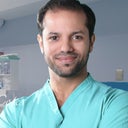Your description of your "belly" is a common scenario for most women after pregnancy. However, you will need a complete consultation for liposuction versus other surgical options, such as a full abdominoplasty (a "tummy tuck"-involving both the upper and lower abdominal skin/subcutaneous tissue and complete rectus and possible oblique abdominal muscle support/repair) or a "lower" or "mini" abdominoplasty ( a surgical procedure which involves dissection of the lower abdominal skin/subcutaneous tissue, below the belly buttom, and a partial repair of the lower rectus muscles). These are the main options for you and most women following pregnancy or weight loss-conditions which affect the skin, subcutaneous adipose tissue and the muscles of the abdominal wall.







